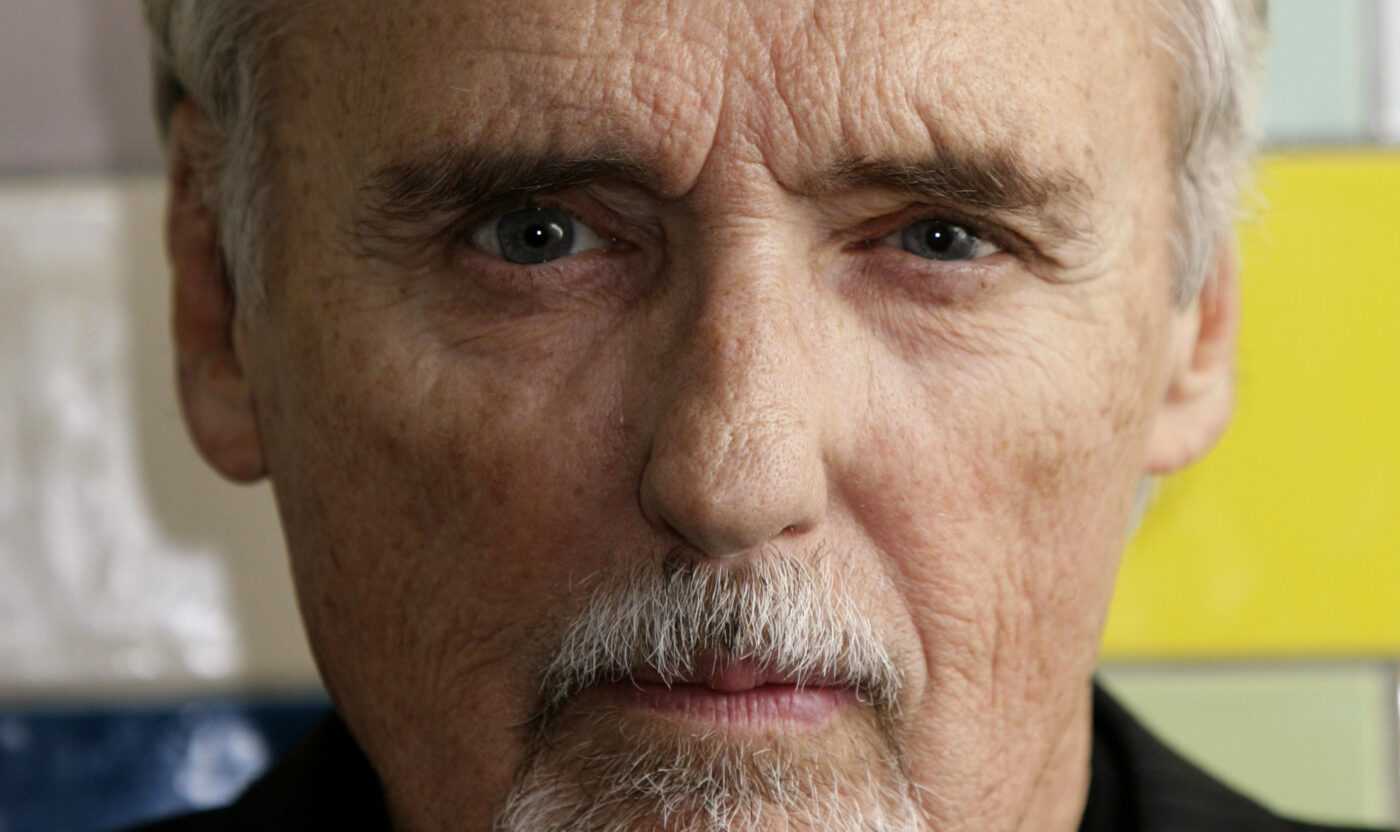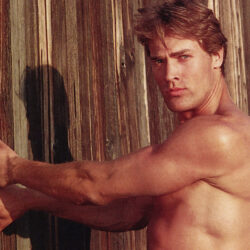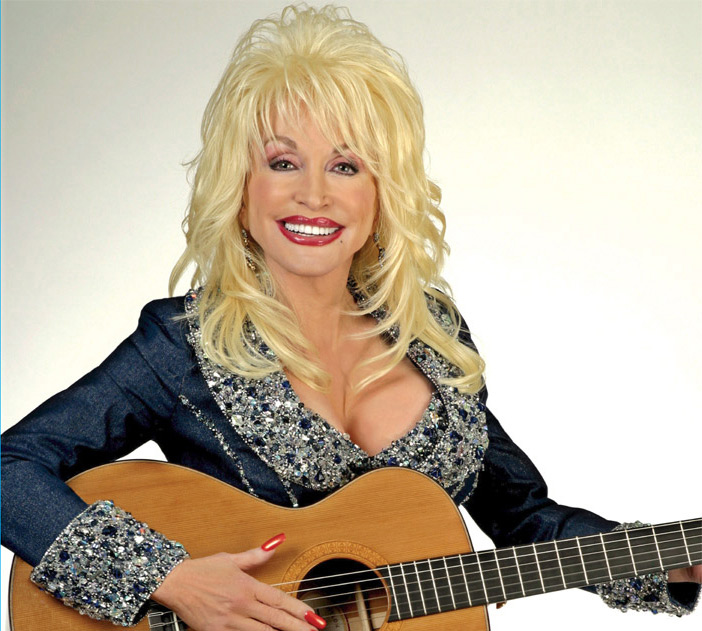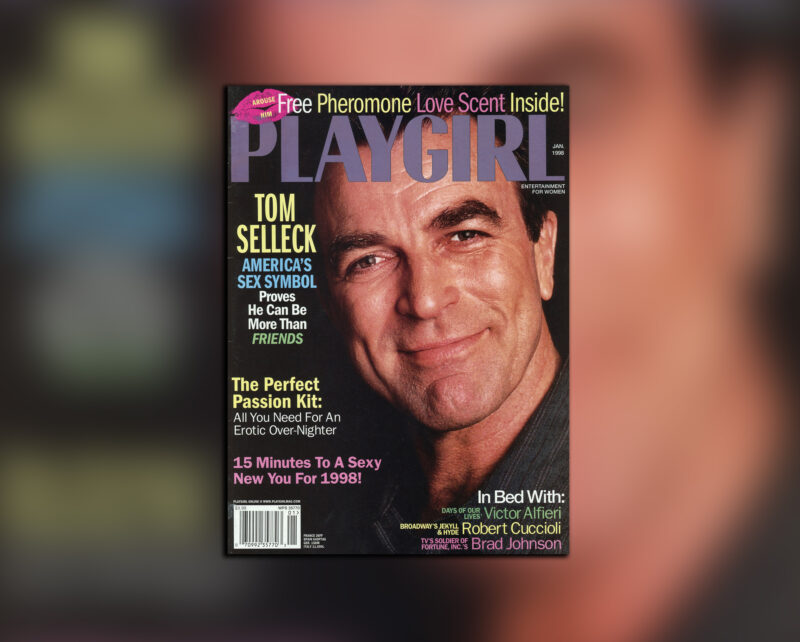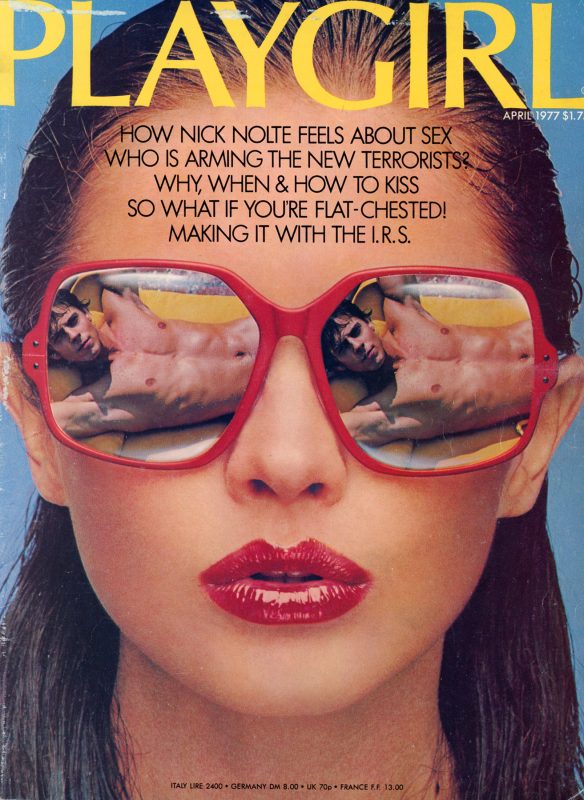Excerpt from Playgirl, August 1990
It’s still hard to look at at Dennis Hopper today without thinking of Easy Rider; the Sixties, and sex, drugs and rock ’n’ roll.
But unlikely as it seems, these days Dennis Hopper is a reformed man. As he walks into the plush Beverly Hills Hotel suite where he’s temporarily ensconced, he looks generations apart from the long-haired hippie prankster he plays in his recent, aptly titled film, Flashback.
The veteran actor is stylishly attired in a sober dark blue suit and tie, and with his greying hair neatly slicked back, he looks more like the distinguished president of a bank than a ’60s renegade. He even orders water. And he doesn’t once light a joint.
Can this really be the notorious hell-raiser who starred opposite James Dean in Rebel Without a Cause! Or the international star and legend of the definitive ’60s period piece, Easy Rider! And the self-destructive addict who smoldered in clouds of cocaine and rivers of booze during the 70s and much of the ’80s?
Well, yes and no. For in recent years, the 53-year-old Hopper has finally gotten his act together, making up for what he bluntly describes as “not so much a long lost weekend as a long, lost lifetime.”
Since he resurfaced in the mid ’80s, the alcoholic-turned-workaholic has been burning up the screen again as both an actor and director in such films as Hoosiers (for which he received a long- overdue Academy Award nomination), Blue Velvet, Black Widow, River’s Edge, Flashback, and the forthcoming Chattahoochee.
And following the success of his 1988 Sean Penn/Robert Duvall hit Colors, the man who was named Best New Director at the 1969 Cannes Film Festival for Easy Rider has also once again been busy behind the cameras, directing the upcoming films The Hot Spot with Don Johnson and Backtrack with Jodie Foster.
As Huey Walker, an Abbie Hoffman-like ’60s radical in the recent Flashback, we see Hopper in a more familiar persona: wild-haired, wildeyed and ready to do anything for a laugh. He’s been arrested after twenty years underground and now the system, in the shape of FBI agent John Buckner (played by Kiefer Sutherland), finally has a chance to get even.
If Hopper seems tailor-made for the role, the actor is quick to agree. “I don’t think anyone else would have been fighting for the role,” he states, “and there’s no question I am playing myself. At times, I felt perhaps it was too much of an in-joke. When I first read it, I thought it was too politically light, but now I don’t think so. I think there’s a good balance there between the Sixties and the Eighties and the changes made in between.”
Hopper, who grew up in Dodge City, Kansas, and whose early career included such classics as Giant and Gunfight at the O.K. Corral, professes not to have much time for nostalgia, especially for the ’60s.
“I don’t look back too much now, but when I do, I really see the differences,” he comments. “Man, I was really politically active. I was a member of the Student Non-Violent Coordinating Committee and civil rights movement, and I marched with Dr. Martin Luther King, Jr. from Selma to Montgomery. I was really deep into the anti-war movement, and I was one of the guys smuggling kids into Canada to keep them out of the war. Last but not least, I was doing drugs and dealing them.”
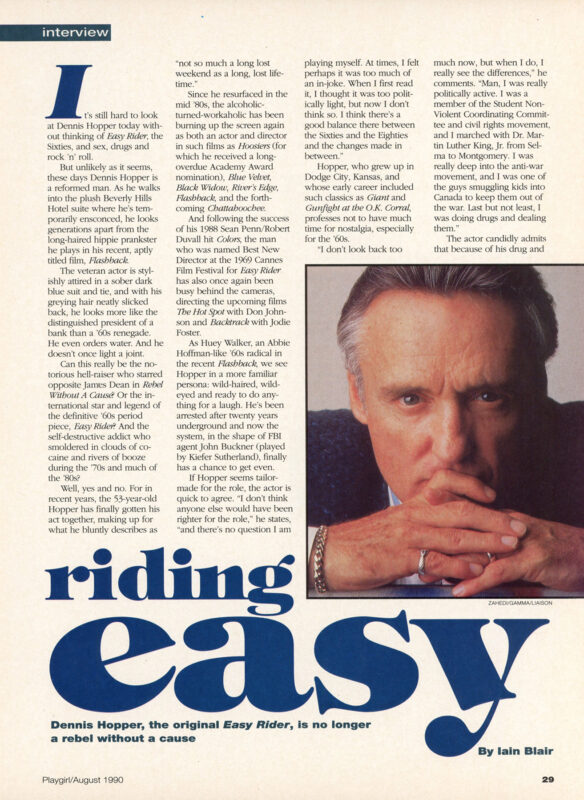
The actor candidly admits that because of his drug and alcohol addiction, “the Seventies turned into a major nightmare as far as I was concerned because the drugs kicked in. They weren’t working anymore and they were suddenly using me—I wasn’t using them—and it became a real bummer. I was lucky to even get out of the Seventies or the early Eighties alive.”
“The real sad thing about all the drugs and booze is that I know I wasted a lot of fucking time,” he adds, shaking his head. “I should have been working, working, and instead it turned into a long lost weekend. Or more like a lost lifetime.”
And indeed, following the success of Easy Rider, Hopper virtually disappeared from view. His 12-year self-imposed exile from Hollywood was hastened by the disastrous reception of his 1970 pet project, The Last Movie, shot on location in the mountains of Peru. After it was withdrawn from distribution within two weeks of opening, the actor took the rejection very much to heart.
“That’s when I really started getting fucked up,” confesses Hopper. “I wasn’t overdoing drugs where I was incapacitated and couldn’t work. I’d smoke a joint and I’d get high enough that I thought I could use it. I would drink to the point that I thought I could use it and that worked for me for a long time as an actor. I was never late, though,” he adds proudly. “I was always professional in that respect.”
“On the other hand, there are a lot of blackouts I had in my personal life, and it became a nightmare, also for the people working with me,” he grins. “They never were sure who was going to come out of that dressing room. The Jekyll and Hyde syndrome kicked in, so it’s amazing I ever worked. And of course, I also was in full denial.”
“I bottomed out so badly,” he admits. “I mean, everybody has their bottom, and man, I found a sinkhole that was so deep, I finally was relieved of all desire to drink or take drugs, and now I have no problem.”
Hopper pauses and considers this statement before quickly adding, “Well, that’s not strictly true. I have a problem, I am an alcoholic-drug addict recovering one day at a time. But I don’t have any obsession to do any of them anymore. I can sit at a bar, or sit in a room and people can do drugs and there is no way I am reaching for that straw or for that joint or drink, because, man, the places I’ve been and the things I’ve seen I don’t want to go back to…”
… continue reading on PLAYGIRL+

